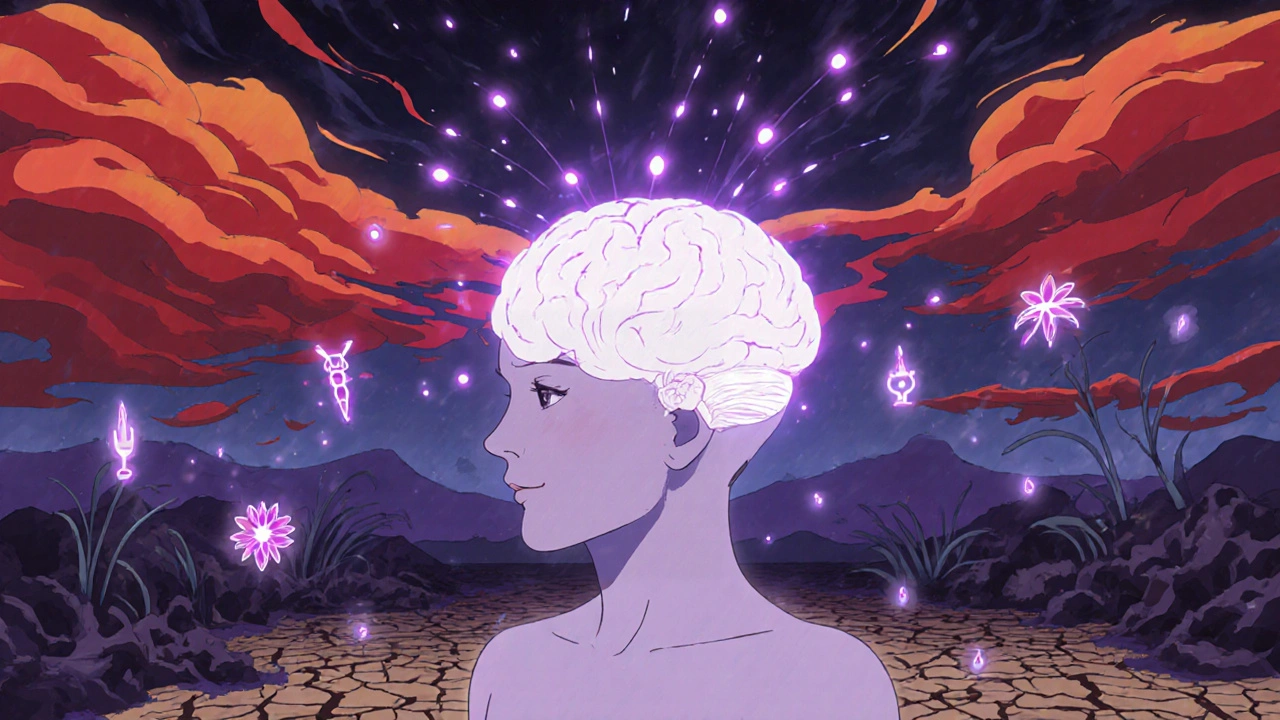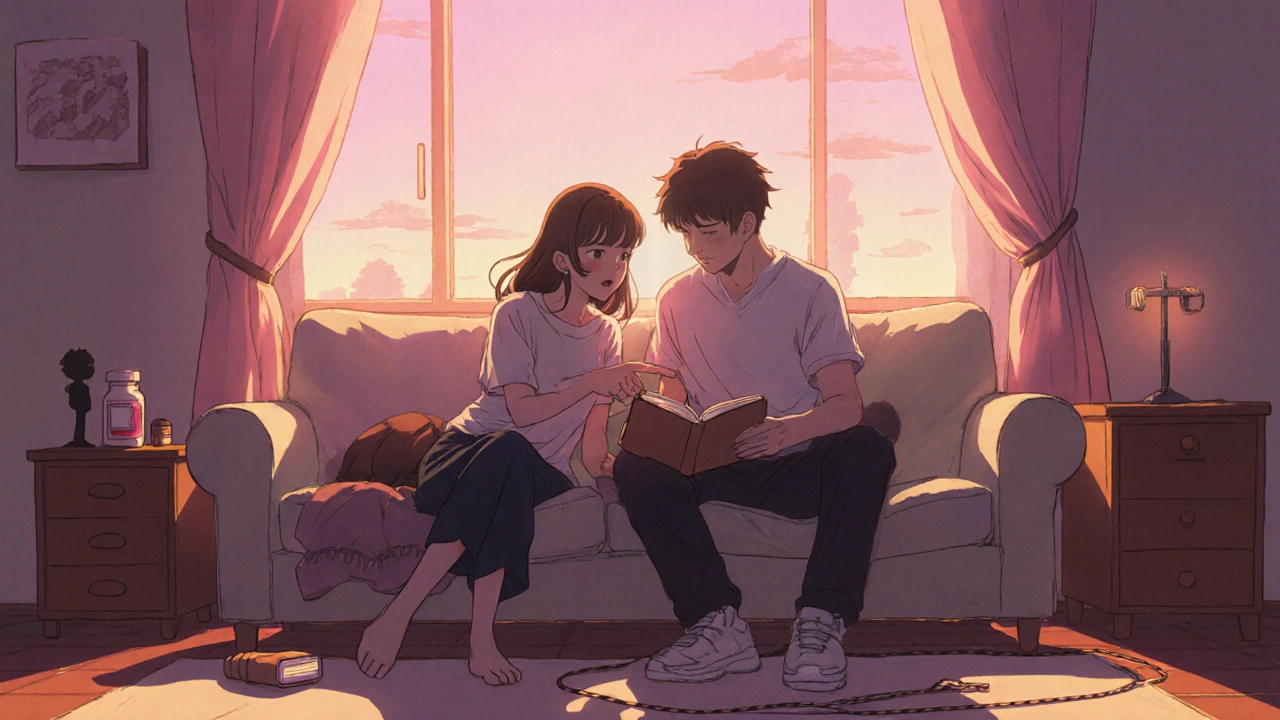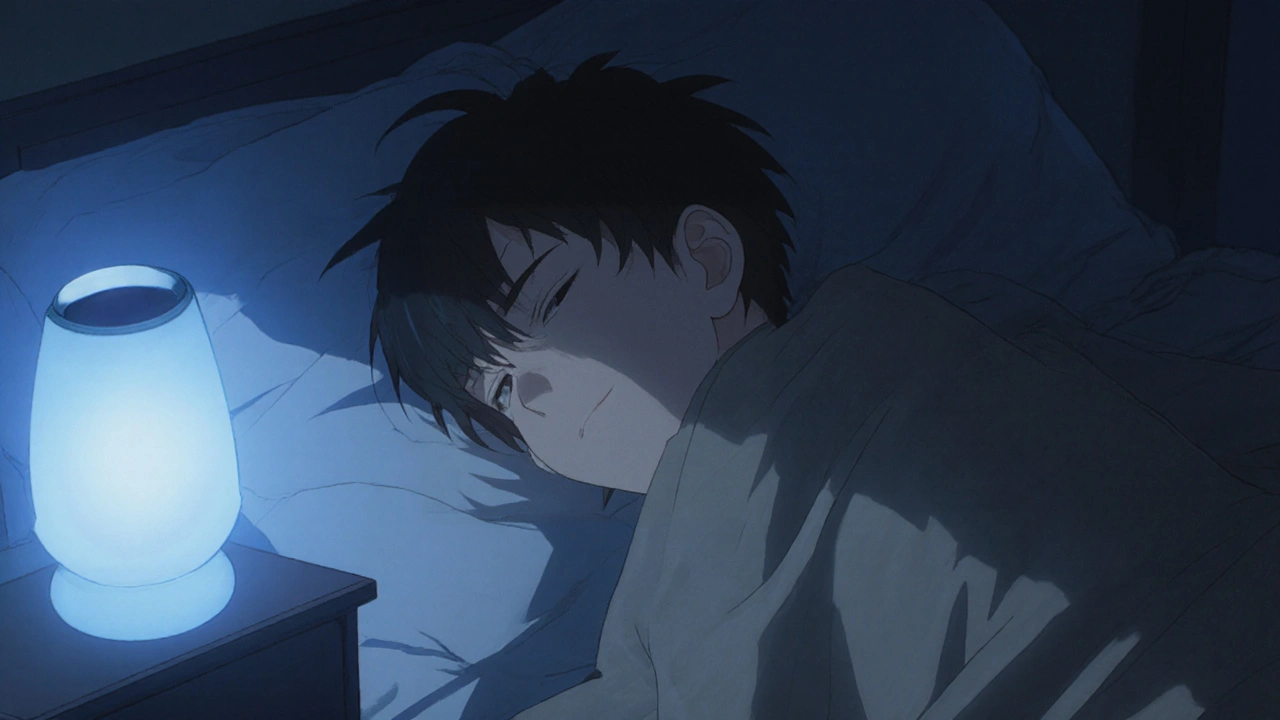Ever wonder why a mood that feels like a heavy blanket can also dim the spark in the bedroom? That link isn’t just coincidence - it’s a real, two‑way street between major depressive disorder and sexual health. Below we’ll peel back the biology, the meds, the mindset, and the relationship side‑effects, then give you clear steps to reclaim a satisfying sex life.
Why Depression Changes Desire
When you’re stuck in a depressive slump, the brain’s reward system goes on low‑fuel mode. Dopamine, the chemical that fuels pleasure, drops sharply, so even activities that once felt good start to feel flat. That dip hits libido hard. In fact, studies from the National Institute of Mental Health show that over 60% of people with major depressive disorder report a noticeable decline in sexual desire.
What’s Happening Under the Hood? The Biological Pathways
Three main physiological culprits drive the sexual fallout:
- Neurotransmitter imbalances - low serotonin and dopamine levels blunt arousal signals.
- Hormonal shifts - chronic stress raises cortisol, which can suppress testosterone in men and estrogen in women.
- Vascular changes - depression is linked to poorer circulation, making erections or vaginal lubrication harder to achieve.
These factors don’t act in isolation. For example, high cortisol can dampen dopamine release, creating a feedback loop that keeps both mood and desire low.
When Medication Joins the Party
Antidepressants are lifesavers for many, but they often bring a side‑effect package that includes sexual dysfunction. Not all drugs are equal, though. Below is a quick look at the most common classes:
| Class | Common Drug | Primary Sexual Issue | Reversibility |
|---|---|---|---|
| SSRIs | Fluoxetine | Reduced libido, delayed orgasm | Often improves after dose reduction or switch |
| SNRIs | Venlafaxine | Erectile dysfunction, anorgasmia | Variable, may persist |
| Tricyclics | Amitriptyline | Decreased arousal, dry genital tissue | Usually improves on taper |
| MAOIs | Phenelzine | Libido drop, erectile difficulty | Can improve with adjunct therapy |
| Atypical (bupropion) | Bupropion | Less impact, sometimes increased libido | Usually minimal |
Notice the outlier: bupropion often spares sexual function and can even boost desire. If you’re on an SSRI and notice a slump, talk to your prescriber about a switch or add‑on like bupropion.

Psychological Roadblocks
Beyond chemistry, the mind adds its own hurdles. Negative self‑talk (“I’m not attractive”) and rumination can turn sex into a performance‑anxiety scenario. When you’re already fearing failure in one area of life, the bedroom can feel like a high‑stakes test.
Therapies that target these thoughts - cognitive‑behavioral therapy (CBT) and mindfulness‑based stress reduction (MBSR) - have documented success. A 2023 meta‑analysis found that CBT reduced sexual dysfunction scores by 28% in depressed patients.
Relationship Dynamics: The Ripple Effect
Depression doesn’t stay inside a single person; it spreads to partners. A partner may feel rejected, leading to tension, which then feeds back into the depressive loop. Open communication is key, but it’s easier said than done when energy levels are low.
Practical tips:
- Schedule a short, low‑pressure “check‑in” time each week - no sex, just sharing feelings.
- Use “I” statements (“I feel distant” instead of “You make me feel…”) to keep blame out.
- Plan non‑sexual intimacy (hugging, holding hands) to rebuild connection.

Taking Action: Managing the Impact
Here’s a step‑by‑step plan that blends medical, lifestyle, and relational moves.
- Assess the baseline. Keep a simple diary for two weeks noting mood rating (1‑10) and any sexual activity or desire level.
- Talk to a professional. Bring the diary to your psychiatrist or therapist. Ask specifically about sexual side‑effects.
- Review medication. If you’re on an SSRI, discuss dose timing (taking it earlier in the day can reduce night‑time effects) or a potential switch.
- Boost natural dopamine. Short bursts of aerobic exercise (15‑20 minutes) raise dopamine and improve blood flow.
- Mind‑body practices. Guided meditation or progressive muscle relaxation can cut anxiety that blocks arousal.
- Explore non‑pharma aids. Over‑the‑counter lubricants, zinc supplements, or pelvic‑floor exercises can help with physical symptoms.
- Communicate with your partner. Set a regular “talk‑time” and experiment with new non‑sexual activities together.
Remember, progress is rarely linear. Some weeks you’ll feel a spark; others you might still be in the fog. Consistency beats perfection.
When to Seek Specialized Help
If any of these red flags appear, consider a referral:
- Persistent erectile dysfunction or lack of orgasm despite medication changes.
- Intense distress about sexual identity or performance.
- Relationship breakdown directly tied to sexual issues.
- Physical pain during sex that doesn’t resolve with simple measures.
Sexual therapists, urologists (for men), gynecologists (for women), and endocrinologists can each address a slice of the puzzle. A coordinated approach often yields the best outcomes.
Bottom Line
Major depressive disorder can throw a wrench into sexual health, but the problem is multi‑faceted, not insurmountable. By understanding the neurochemical, hormonal, medication‑related, and relational pieces, you can create a personalized roadmap. The sooner you map the terrain, the easier it is to navigate back to pleasure.
Can depression cause a complete loss of libido?
Yes. In severe cases, the brain’s reward pathways are so muted that sexual desire may disappear entirely. That’s why tracking changes over time is crucial - it helps clinicians gauge severity and tailor treatment.
Do all antidepressants affect sex the same way?
No. SSRIs and SNRIs are the biggest culprits, often causing delayed orgasm or reduced desire. Bupropion, on the other hand, tends to have a neutral or even positive effect on sexual function.
Is there a non‑medication way to improve sexual function while on antidepressants?
Lifestyle tweaks like regular cardio, pelvic‑floor exercises, and mindfulness can offset some of the drug‑related decline. Talking openly with a partner and possibly trying a low‑dose adjunct like bupropion are also effective strategies.
How long does it take for sexual side‑effects to improve after changing medication?
Most patients notice a shift within 2‑4 weeks after a dose reduction or switch, but full recovery can take up to three months, especially if hormonal balances need time to reset.
Should I stop my antidepressant if my sex life suffers?
Never stop a prescription on your own. Talk to your prescriber first - they can adjust the dose, switch drugs, or add a supplement to protect sexual function while keeping mood in check.

